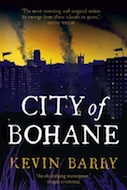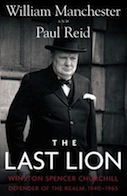Laurel Snyder’s new novel for middle-grade readers, Bigger than A Bread Box, is much more of a complex read than I usually find in this category (but that just means I don’t read enough MG anymore).
 Twelve-year-old Rebecca’s parents separate, and Rebecca gets dragged away from Baltimore, the only home she’s known, to hot, sticky Atlanta and her maternal grandmother’s house. Thrown into a new school, Rebecca feels and acts as if she’s a character in a story, trying on new names, new personalities and new friends to see if anything can heal the hurt she feels. The quirk that separates this book from others about going through divorce is that Rebecca discovers a magical breadbox in her grandmother’s attic that can deliver anything she wishes for (so long as it fits into the breadbox). So, ipods, candy and food from Baltimore are fine, but her Dad is much too big.
Twelve-year-old Rebecca’s parents separate, and Rebecca gets dragged away from Baltimore, the only home she’s known, to hot, sticky Atlanta and her maternal grandmother’s house. Thrown into a new school, Rebecca feels and acts as if she’s a character in a story, trying on new names, new personalities and new friends to see if anything can heal the hurt she feels. The quirk that separates this book from others about going through divorce is that Rebecca discovers a magical breadbox in her grandmother’s attic that can deliver anything she wishes for (so long as it fits into the breadbox). So, ipods, candy and food from Baltimore are fine, but her Dad is much too big.
As coping strategies go, the Breadbox is fine for a while, enabling Rebecca to bribe her way into the good graces of the cool kids at her new school with candy, but, like anything, too much of a good thing isn’t good for Rebecca. It turns out that the items that appear in the breadbox come from somewhere and are not just created by magic, so Rebecca’s sudden ownership of them has real-world consequences. This is where Bigger than a Bread Box departs from the usual pattern of MG fiction where the confusing world of tween friendship or the necessary lessons of growing up are underlined by the help of some magical item or another and the novel enters the gothic “Here Be Dragons” territory of the Brother’s Grimm. This is the off-the-beaten-track territory where children who get lost in the woods encounter little old ladies who want to cook and eat them, and magical “gifts” bring as much danger as bounty. It feels entirely appropriate that this book should focus on the potentially negative consequences of magical intervention because the subject of the book, Rebecca’s story, is one of the worst a kid can go through: the loss of their home, the breakup of their family, and the crumbling of all their attendant certainties.
The resolution of Rebecca’s story — well, I don’t really want to discuss that because a) it could kill the surprises, and b) I can’t find a succinct way to put it into words. Bigger than a Bread Box starts out like the “normal” Laurel Snyder novel, then it takes a twist, and then it goes off somewhere completely unexpected. This book challenges readers (both old and young), pushes us out of our “middle grade” comfort zone, and keeps us absolutely glued to every word.
This feels like such an inadequate review for such a powerful book that I‘ve gone back and forth about posting it at all. Part of my uncertainty is that I have almost no direct experience with divorce — I grew up in Ireland, a country with no divorce (until recently) and large, multi-generational families living together — so I feel a little unprepared to discuss a depiction of what is doubtless a terribly shocking and disorienting event. But, I did find this is a powerful book, and a story that would be great for a parent to read with or talk over with their child — whether or not there’s any divorce within the family. I know my own elementary-age kids ask questions about divorce frequently, and my eldest, who’s almost Rebecca’s age, would probably learn a lot from this thoughtful, emotional and completely gripping novel.
Notes
My review of Laurel Snyder’s previous two novels, Any Which Wall and Penny Dreadful.







4 comments
Comments feed for this article
October 4, 2011 at 6:17 am
thiskidreviewsbooks
NIce post ! What age level is this book good for?
October 4, 2011 at 7:58 am
Rich
For “Middle Grade” I’d say 9-12, but that comes with the caveat that it depends on the reading level of the child. For Bread Box, I’d recommend the older end of that range (11-12) as it’s a complex story.
October 17, 2011 at 2:58 pm
Bigger than a Breadbox by Laurel Snyder (2011) « DogEar
[…] reviews: A Patchwork of Books Points West Publisher’s Weekly Slatebreakers Stacked Books The Word Hoarder Share this:FacebookTwitterPrintEmailLike this:LikeBe the first to like this post. Tags: fantasy, […]
September 29, 2015 at 11:38 am
Bigger than a Breadbox by Laurel Snyder (2011) | wordstocking
[…] Read other reviews: New York Times Book Review A Patchwork of Books Points West Publisher’s Weekly Slatebreakers Stacked Books The Word Hoarder […]